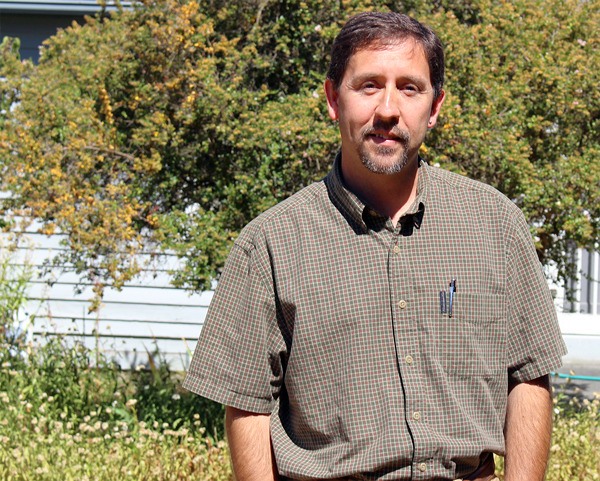Some of the most profound gifts of life have come to Mark Lucero with death.
Once a week he visits someone who is dying.
Sometimes they talk. They tell him about their families, their time in the service, their days long past. They tell him the things they need to say but can’t to the people they love.
Sometimes Lucero simply sits close while they sleep.
He wants to bring a gentle presence, a listening ear. He said he gains more from the experience than he gives.
“It’s a kind of a sacred privilege to sit with someone who is dying,” he said. “It’s a sacred space.”
The Coupeville man is one of about 20 people who serve as volunteers for Whidbey General Hospital’s hospice program.
Professionally, he works as a grief counselor with his own practice in Coupeville. He decided to get involved as a volunteer after a friend who is a chaplain told him about the need.
As a volunteer, his job is to provide respite to the patient’s caregivers, who are usually family. He tends to visit the same person for a period of time.
There’s the rub.
“You get attached to people, especially if you spend a significant amount of time with someone,” he said. “You get attached and you know they’re going to die.”
This work isn’t as dark as one might expect. To the contrary, there are jokes, laughter and sometimes pointed commentary from the patient.
“People who are dying don’t waste time when they have something to say,” he said.
Whidbey General Hospital’s hospice program is about a year old and Medicare certified, which means that someone on Medicare receives hospice care at no cost to the person, said Diane Fiumara, hospice manager.
Hospice provides care to people whom doctors believe have less than six months to live.
Patients can choose to stay at home, where doctors, a social worker, nurses and the chaplain come to them. Hospice aids help patients bathe or shower.
“If you ask most people to picture where they would want to die, they would say in their homes surrounded by family and not in a sterile hospital environment — although some prefer that and that’s OK too,” Fiumara said.
At the moment, about 30 patients are in the program. Volunteers sit with patients, chat, read to them, do light chores and run errands.
The hospital is searching for more volunteers, said Suzanne Reynolds, a volunteer coordinator. In particular, they would like to find veterans, since these volunteers can often better relate to the life experiences of patients who also served in the military.
Volunteers need to be 18 years or older, pass a background check and participate in about 20 hours of training.
The next training session is later this month. Those who are interested should call 360-914-5635.
“You have to have a comfortable attitude about dying,” Reynolds said. “You need to be a good listener, generally a calm person and want to be of service.”
In a culture in which death is often sanitized and hidden, Lucero said this experience has made him more aware of life — in particular, how to live his own better.
“We won’t live forever,” he said. “It lights a fire under you to go after your dreams.”



